The "Communist Zagreb Tour" offers visitors a compelling glimpse into the city’s socialist past. Led by local guides, the tour explores the architectural and urban transformations that defined the Yugoslavia era. Travelers wander through neighborhoods like Travno and Utrine, where standardized apartment blocks and communal spaces fostered a distinct sense of community. While the tour celebrates Zagreb’s rich historical tapestry, it also provides personal anecdotes that shed light on the quirks of life under a centralized economy. With inclusive design and flexible booking options, this experience invites travelers to discover a lesser-known chapter of Zagreb’s history.
- Key Points
- The Yugoslavia Era in Zagreb
- Historical Landmarks of the Socialist Period
- Life in Travno and Utrine Neighborhoods
- Stories From the Tour Guide
- Exploring Zagreb’s Public Transportation
- Accessibility and Inclusivity
- Booking and Review Details
- Frequently Asked Questions
- Is a Private Car or Taxi Transportation Provided?
- Can the Tour Be Customized for Individual Preferences?
- Are There Any Food or Drink Options Included in the Tour?
- How Much Time Is Allocated for Exploring the Neighborhoods?
- Can the Tour Be Extended or Shortened Upon Request?
- The Sum Up
- More Food & Drink Experiences in Zagreb
- More Tours in Zagreb
- More Tour Reviews in Zagreb
- Still browsing? Here are more Zagreb experiences we've covered recently
Key Points
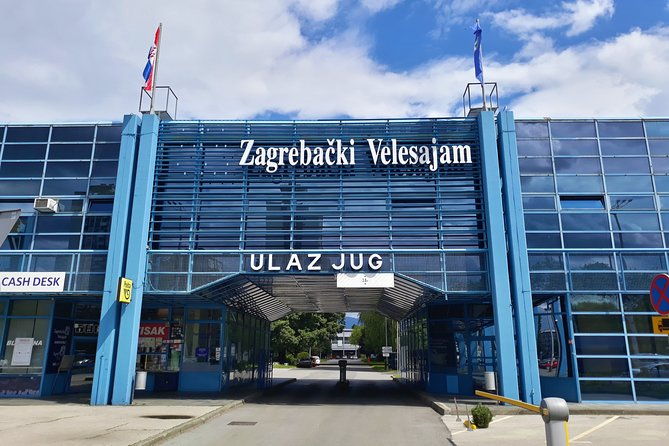
-
The tour explores the significant urban transformations and architectural landmarks of Zagreb during the socialist era, showcasing the city’s rich communist history.
-
Visitors gain insights into the daily life and social dynamics of residents in Travno and Utrine, neighborhoods exemplifying socialist urban planning principles.
-
The tour includes personal anecdotes and narratives from the guide, providing a nuanced perspective on the influence of the state on consumer goods and everyday experiences.
-
The tour offers a comprehensive look at Zagreb’s public transportation system, highlighting its integral role in the city’s urban life under socialist policies.
-
The tour is designed to be accessible and inclusive, accommodating visitors with various mobility needs and ensuring an enjoyable exploration of Zagreb’s socialist heritage.
The Yugoslavia Era in Zagreb
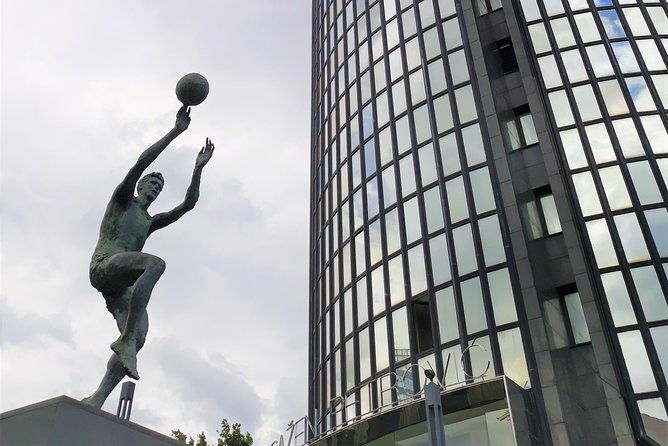
During the socialist era of Yugoslavia, Zagreb underwent significant transformations that shaped the city’s landscape and the daily lives of its residents.
The government invested heavily in urban planning, constructing new neighborhoods like Travno and Utrine to accommodate the growing population. These communities featured standardized apartment blocks and shared public spaces, reflecting the socialist ideology of equality and collective living.
Amidst this architectural shift, Yugoslavian cultural influences permeated various aspects of daily life, from the arts to consumer goods.
The tour will explore these historical remnants, providing insights into Zagreb’s socialist past and its lasting impact on the city.
Looking for more options in Zagreb? We've reviewed plenty of other experiences.
Historical Landmarks of the Socialist Period
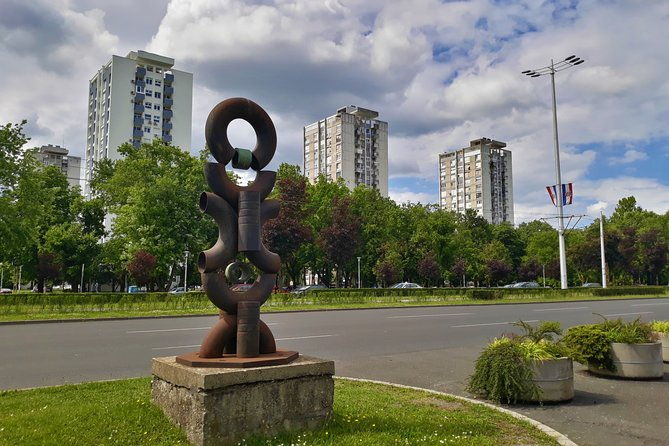
Although Zagreb’s socialist era brought significant urban changes, several historical landmarks from this period remain standing as testaments to the city’s past.
Modernist structures like the Vatroslav Lisinski Concert Hall and the Zagreb Fair pavilions showcase the architectural styles of the time.
Neighborhoods such as Travno and Utrine exemplify the socialist approach to urban planning, with their uniform apartment blocks and green spaces.
Life in Travno and Utrine Neighborhoods
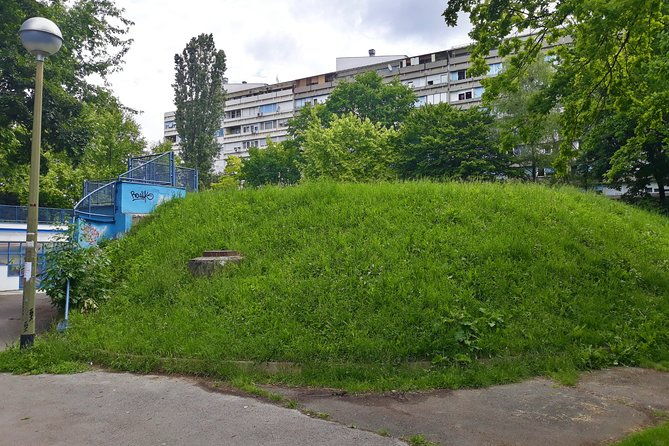
The "Communist Zagreb Tour" offers a captivating glimpse into the neighborhoods of Travno and Utrine, which exemplify the socialist approach to urban planning during Yugoslavia’s rule.
These residential areas were designed with a focus on communal living, featuring standardized apartment blocks, shared green spaces, and ample public amenities.
Visitors can explore the architectural features, such as the distinct façades and communal courtyards, that fostered a sense of community.
The tour guide shares insights into the daily lives of residents, revealing how these neighborhoods shaped social dynamics and everyday experiences under the socialist system.
Stories From the Tour Guide
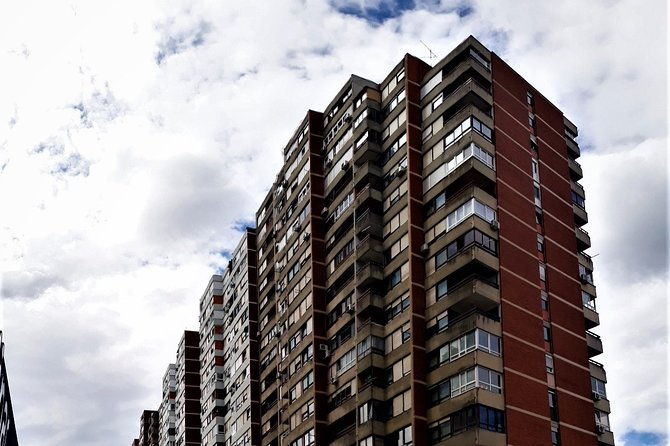
As visitors embark on the "Communist Zagreb Tour," the licensed guide captivates them with a wealth of personal anecdotes and first-hand experiences from the socialist era.
Sharing stories of daily life, the guide recalls waiting in long queues for necessities, the scarcity of consumer goods, and the omnipresent influence of the state.
Anecdotes about the quirks of the centralized economy and the distinctive urban architecture of the time bring the socialist period to life.
With engaging narratives, the guide offers a nuanced perspective, neither glorifying nor demonizing the realities of living under Yugoslavia’s communist regime.
Exploring Zagreb’s Public Transportation
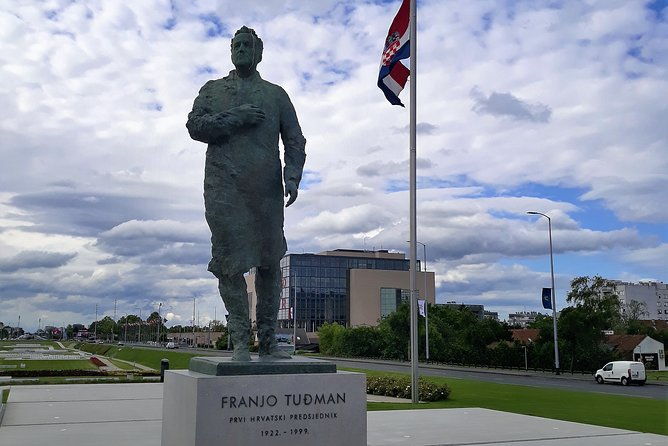
Moving from the personal anecdotes shared by the guide, the "Communist Zagreb Tour" also explores the public transportation system that was integral to daily life during the socialist era.
Guests ride the bus, a common mode of transport back then. The guide shares insights about the bus network, detailing how it connected neighborhoods and enabled residents to commute efficiently.
Travelers gain an understanding of the vital role public transit played in facilitating movement and accessibility across Zagreb. This aspect of the tour provides a more holistic perspective on urban life under Yugoslavia’s socialist policies.
Accessibility and Inclusivity
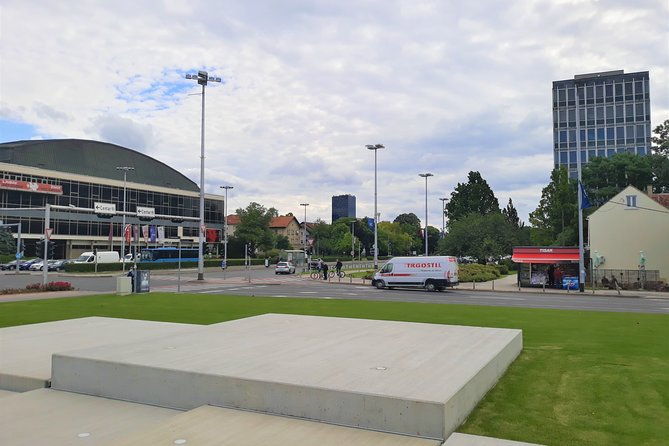
Accessibility and inclusivity are at the forefront of the "Communist Zagreb Tour," ensuring a welcoming experience for all.
The tour is wheelchair and stroller accessible, with transportation and surfaces designed for ease of movement. Service animals are welcome, and infants can join the tour by sitting on laps.
The tour caters to most travelers, making it an inclusive experience that celebrates Zagreb’s history during the socialist era of Yugoslavia.
The guide’s stories and insights provide an engaging, joyful exploration, allowing participants to enjoy the city’s past while ensuring accessibility for all.
Booking and Review Details
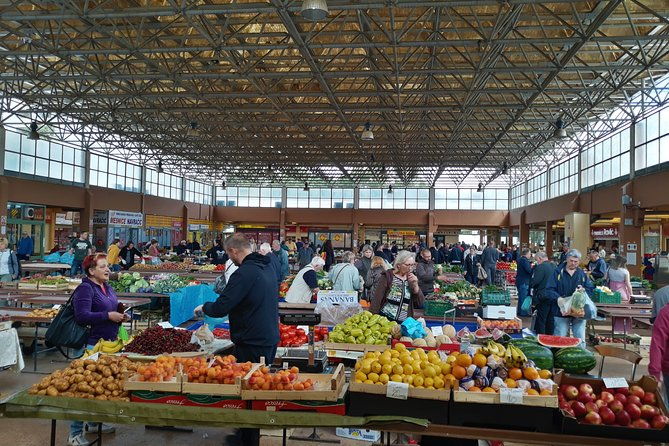
The "Communist Zagreb Tour" offers flexible booking options, allowing travelers to reserve their spot while maintaining the freedom to change their plans.
Priced at $303.62 per group of up to 10 people, the tour can be booked with no upfront payment, as travelers can reserve now and pay later.
Potential guests can cancel their reservation up to 24 hours before the tour starts without incurring any fees.
Based on a single 5-star review, the tour appears to provide a positive and engaging experience exploring Zagreb’s socialist history with a licensed guide.
Frequently Asked Questions
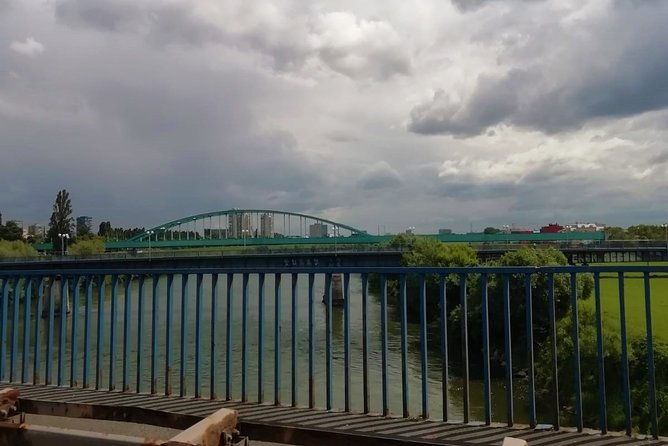
Is a Private Car or Taxi Transportation Provided?
No, private car or taxi transportation is not provided for this tour. The tour includes public transportation (bus) tickets, and you will travel via bus during the 3-hour walking tour of Zagreb.
Can the Tour Be Customized for Individual Preferences?
The tour can be customized to individual preferences. The licensed guide is open to adjusting the itinerary and focus to meet the specific interests and needs of each group. Flexibility is offered to ensure a personalized experience.
Are There Any Food or Drink Options Included in the Tour?
The tour does not include any food or drink options. It focuses solely on providing a guided walking experience to explore historical landmarks and neighborhoods related to Zagreb’s socialist era under Yugoslavia.
How Much Time Is Allocated for Exploring the Neighborhoods?
The tour allocates 3 hours to explore historical landmarks and neighborhoods like Travno and Utrine. The licensed guide shares stories and insights about life in Zagreb during the socialist era of Yugoslavia throughout the walking tour.
Can the Tour Be Extended or Shortened Upon Request?
The tour’s duration can be extended or shortened upon request, though the standard tour is 3 hours long. Travelers should discuss any preferences with the tour operator to ensure the experience meets their needs.
The Sum Up
The "Communist Zagreb Tour" offers a captivating look into Zagreb’s socialist past. Visitors explore neighborhoods, learn about urban planning, and hear personal stories from local guides. With an inclusive design and flexible booking options, this experience celebrates the city’s rich historical tapestry, providing insights into the quirks of life under a centralized economy. It’s an informative and immersive way to discover Zagreb’s socialist legacy.
More Food & Drink Experiences in Zagreb
- Zagreb Craft Beer Tour & Trip to Slovenias Beer Fountain
- Zadar, ibenik: olive oil, wine & food tasting, Self Drive
- Zagreb: Restaurants, Food & Old Town Walking Tour
- PRIVATE Half-Day Food Tour: The 10 Tastings of Zagreb With Locals
- Zadar, ibenik: Olive Mill Tour, Tasting, Self Drive
- Zagreb: Taste Zagreb Food Tour
More Tours in Zagreb
More Tour Reviews in Zagreb
Still browsing? Here are more Zagreb experiences we've covered recently
- 14 Top Tours In Zagreb (With Reviews & Prices)
- 14 Top Walking Tours In Zagreb (With Reviews & Prices)
- 14 Fantastic Tours & Experiences In Zagreb
- The 5 Top Private Driver Services In Zagreb: Which Is Best?
- Which Zagreb Historical Tours To Choose? We Rank The 3 Best
- You’ll Love These 4 Bike Tours In Zagreb
- We Rank Zagreb’s 3 Top Food Tours
- 3 Top-Rated Zagreb City Tours
- Zagreb through plants: an urban and botanical walk
- From Zagreb: Ljubljana and Postojna cave Day Trip
- Zagreb: Photoshoot for Couples and Individuals
- Hunjka: Medvednica Mountain Hiking Trip
